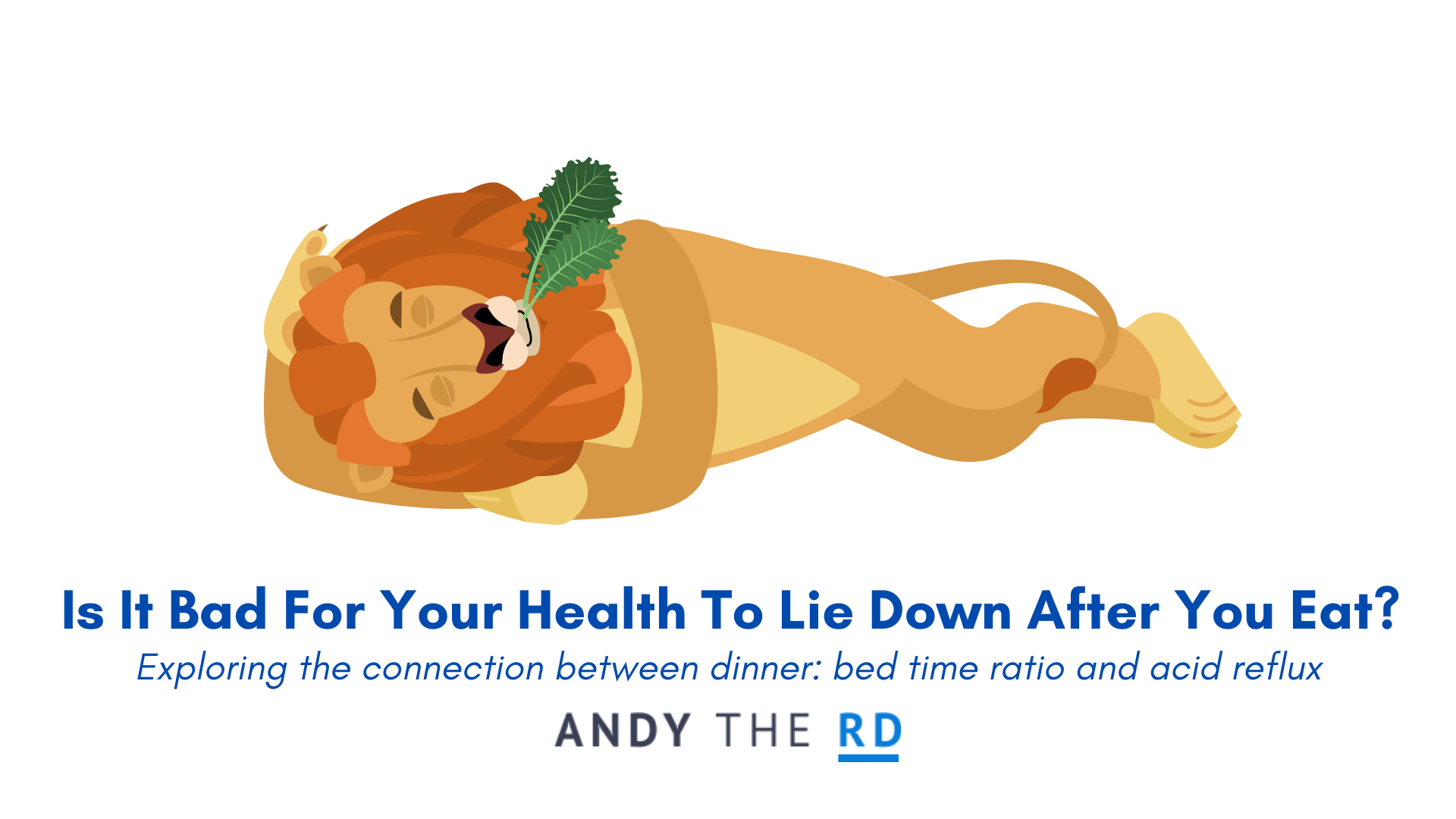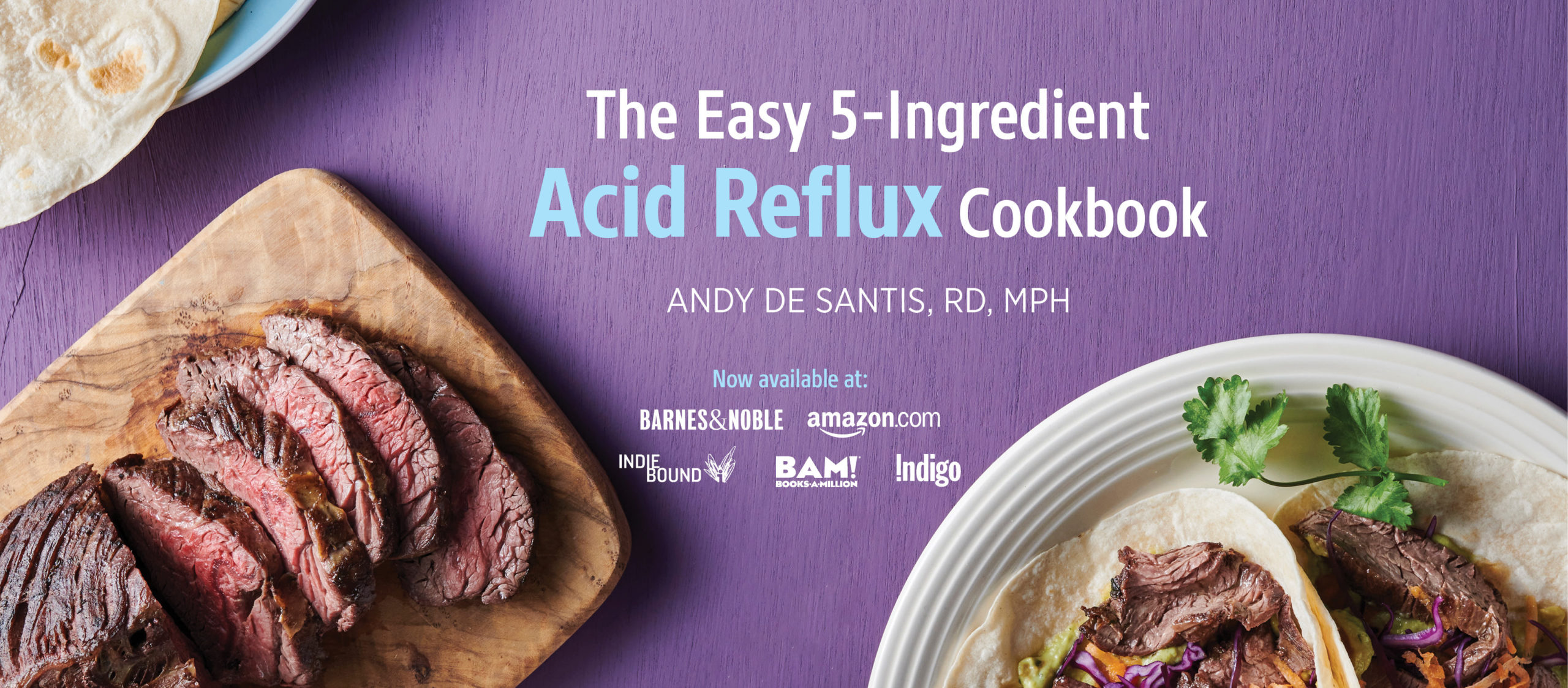I field this question from my all clients all the time, all of them coming from different angles with it.
Many believe that eating at night leads to weight gain or may be generally bad for your health, but the digestive tract rarely comes to mind.
Yet it is those with a history of heart burn, acid reflux and GERD that are at most peril from going to bed or the couch too soon after their last meal or snack.
GERD, also known as Gastroesophageal Reflux Disease, as actually the subject of my latest book release The 5 Ingredient Acid Reflux Cookbook pictured below.
Recent prevalence estimates suggest that up 1 in 4 North Americans suffer from GERD – this is no small number.
Additionally, the last decade has seen a significant increase in the proportion of younger patients with GERD, especially those within the age range of 30–39 years.
The most common symptom is heartburn, which is a burning sensation in the middle/upper part of your abdomen that could potentially be easily confused with a “stomach ache”.
In 2005, a study by a group of Japanese researchers published in the American Journal Of Gastroenterology was the first to provide some level of evidence that those who had a shorter interval between dinner and bed-time (3 hours or less) had a higher risk of suffering from GERD symptoms.
Since then, a pair of studies published looking at the same metrics have come to similar conclusions.
These include:
a 2007 paper out of the American Journal Of Gastroenterology
a 2013 paper out of the Journal of Gastroenterology and Hepatology
Why Is Lying Down Before Bed Bad For GERD?
“[M]any of the physiologic changes that occur with sleep favor the development of GERD. These changes include… [a] marked decrease in acid clearance owing to loss of gravitational effects in the supine position…”
Nicholas Diamant MD Motility Online 2006
In other words, when you are upright gravity and your digestive system are both pushing in the same direction, when you lie down, the aren’t.
For some, this could be a much larger issue if there is a large amount of food sitting in your stomach or upper GI tract ( ie: when you eat right before bed).
Are you one of those people? A closer examination of your symptoms and habits will help you to find out.
Long-Term Consequences Of Eating Before Bed
A 2016 study out of the Medicine ( Baltimore) journal found that eating too close to bed ( <3 hours) and being sedentary after dinner ( ie: not going for a walk) were independently and synergistically linked to an increase in gastric cancer risk, especially among people over the age of 55.
And while this particular topic area is not necessarily flooded with studies and evidence, I think I’ve presented a reasonable enough case that the length of your dinner-to-bed window is at least worthy of your thought and consideration.
Struggling With Acid Reflux? I Can Help
The goal of today’s article is to encourage you guys to think more closely about your eating habits as they relate to how quickly to proceed to lying down or going to sleep and whether or not that may be causing you stomach pain and worsening heartburn, acid reflux and GERD.
From a practice perspective, I know that increased awareness around this issue has made an immense difference in my quality of life, and that of my clients.
As I discussed in a previous article on GERD, many people go very long periods of time before being diagnosed so if you are dealing with acid reflux and/or transient/unidentified stomach pain upon waking, you may benefit (at the very least) from increasing the window of time between your last bite and bed/nap time.
Three hours may be unrealistic or excessive for most people, but that does not mean you can’t extend that window within your practical limitations.
This remains one of the most effective and commonly prescribed lifestyle interventions in GERD management, and one of several non-pharmaceutical treatment approaches I explore in my latest book [ which is available for pre-order!].
Until next time,
Andy De Santis RD MPH
Ready To Fight Back Against Reflux & Heart Burn? I Can Help!




